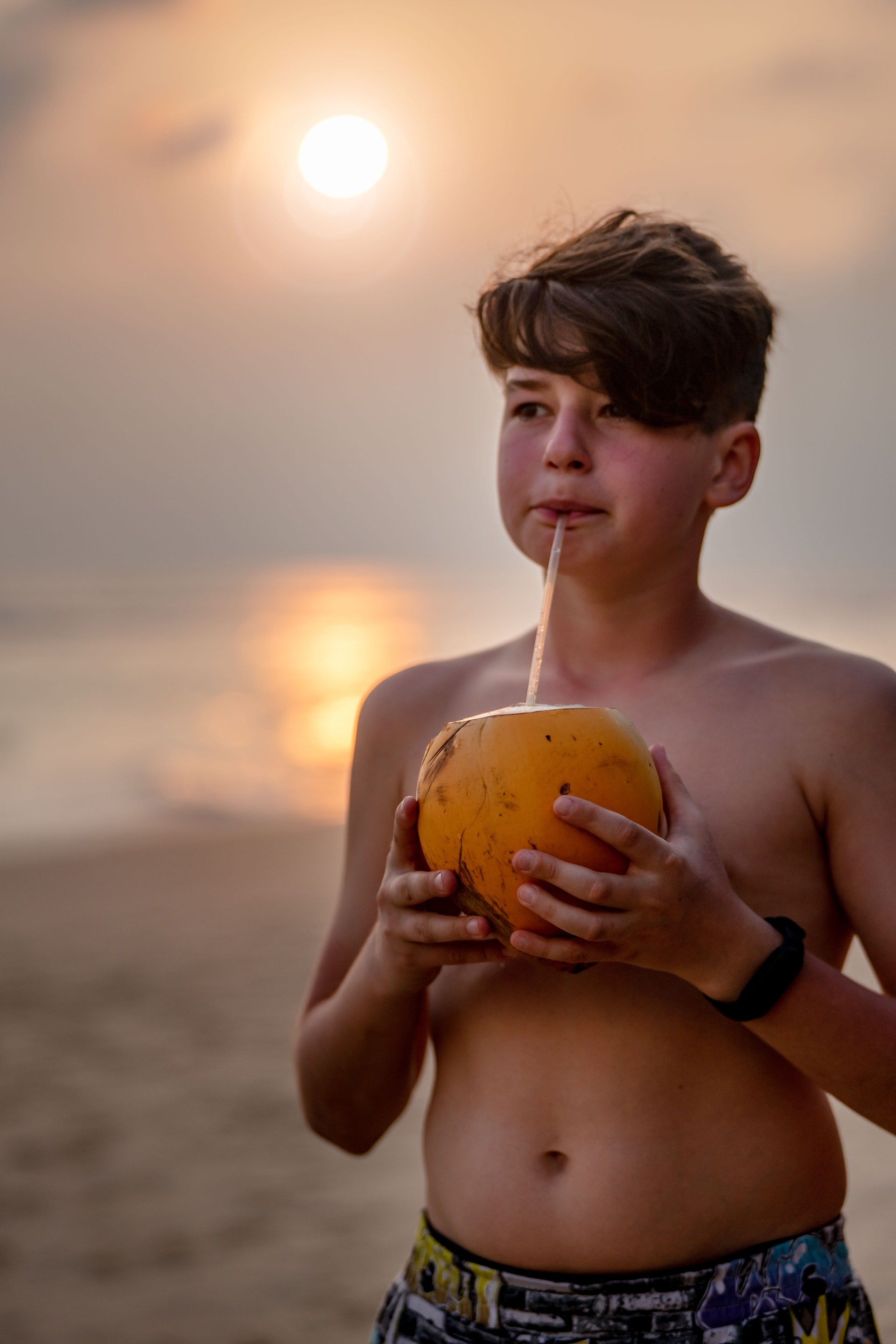
How is King Coconut Different From Regular Coconuts?
King coconuts are a Sri Lankan variety of tree nut, botanically known as Cocos nucifera var. aurantiaca. They stand apart from other coconuts with their orange colored skin and football-like shape. Although they are not as sweet as other varieties they are the preferred thirst quencher in Sri Lanka, where they earned the name “King” of the coconuts.
In the local Sinhalese, they are called Thambili. The palm fruits have been used in Ayurvedic medicine for thousands of years. Unlike the green coconut, King coconuts are only used for the liquid within and they have no husk. Sometimes they are referred to as ‘coconuts for drinking’. They are harvested with extreme care, by hand and lowered from the tall palm trees using ropes and pulleys to avoid damaging the precious fruits.
Nutritional Value
King coconuts are a rich source of B-complex vitamins, amino acids, and electrolytes, which are minerals like potassium, calcium, sodium, magnesium, chloride and phosphate. The liquid within the King coconuts has more magnesium and calcium than an orange and more potassium than a banana.
King Coconuts naturally replenish the body’s loss of electrolytes during exercise or any other type of exertion. King coconuts contain bioactive enzymes which aid ingestion and help with the body’s metabolism. Studies have found the water has antioxidant properties.
Ethnic/Cultural Info
In Sri Lanka, clusters of King coconuts can be found along roadsides, on the backs of bicycles, mopeds and trucks, and are often sold by street vendors. Aside from their status as the beverage of choice on the island, Ayurvedic practitioners have used King coconuts medicinally for thousands of years. The liquid is used to treat urinary tract and kidney troubles and is recommended for pregnant and nursing mothers.
 Despite being grown in the hot, humid tropics, the water within the King coconut is often prescribed for its cooling effects. The water is also given to infants for intestinal troubles and is applied topically on babies with prickly heat.
Despite being grown in the hot, humid tropics, the water within the King coconut is often prescribed for its cooling effects. The water is also given to infants for intestinal troubles and is applied topically on babies with prickly heat.
King Coconuts are indigenous to Sri Lanka, the pearl of the Indian ocean. In Sri Lanka, the coconuts grow without any human intervention and are often found in the wild. They are primarily found in an area called the “Coconut triangle” which stretches between three cities in the island country. King coconut water production is considered to be more sustainable than that of the young green coconuts, which are harvested before the flesh and husk is developed enough for use. Since 2015, various companies from Australia, the United States and the United Kingdom have been selling King coconut water and its use has increased in other areas of the globe.
King coconut water production is considered to be more sustainable than that of the young green coconuts, which are harvested before the flesh and husk is developed enough for use. Since 2015, various companies from Australia, the United States and the United Kingdom have been selling King coconut water and its use has increased in other areas of the globe.



